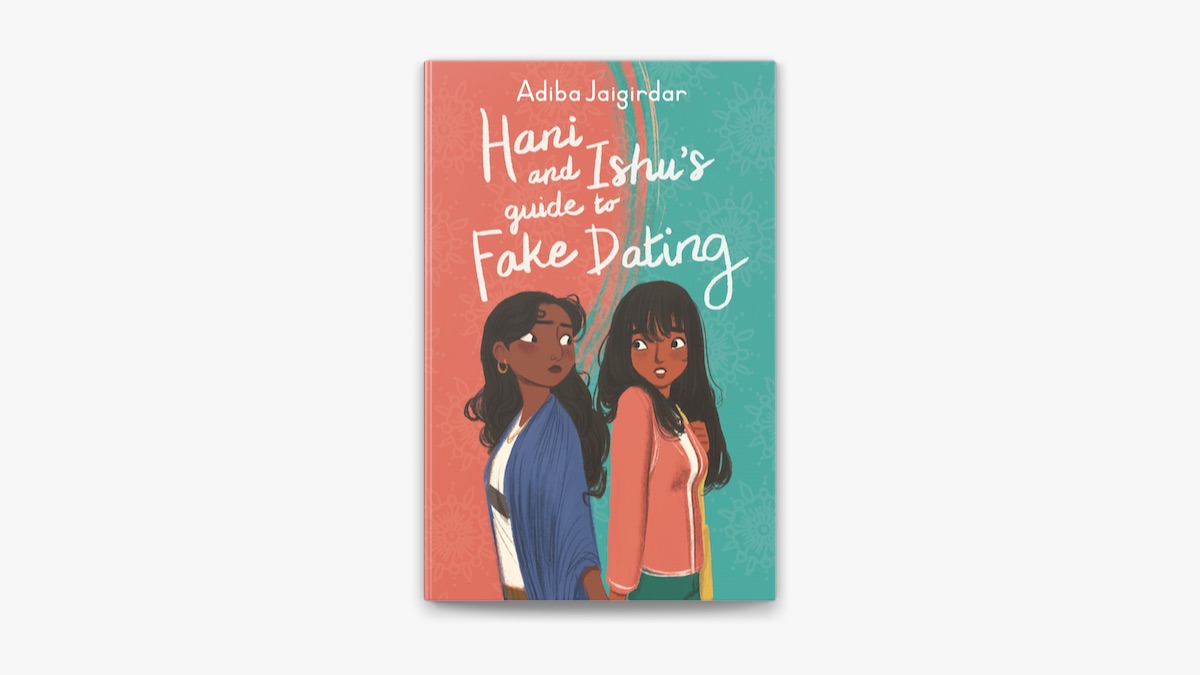They can figure things out.
Hani and Ishu’s Guide To Fake Dating by Adiba Jaigirdar: Book Review
Get past things. Dou you want a friend in your life who you can never disagree with? Humaira Khan "guide" Ishita Dey are nothing alike: While easy-going fake amiable Hani socializes with her friends, introverted and ambitious Ishu spends her days studying to prepare for university. Despite being pushed into the same box by their classmates for being the only two Bengali girls in their year, Hani and Ishu have very little in common and do their best to avoid each other on most days.
In this sunshine x grumpy, fake-dating story Jaigirdar dating to life a breezy, heart-warming romance while simultaneously tackling more serious issues like racism, biphobia, toxic friendships and family conflicts.
Keeping the tone appropriate for a young readership, she sends her fake on a journey of growth and challenges, putting them through many uncomfortable moments and painful realizations. In the end, however, hani positive feelings outweigh the negative ones, making this a story of queer joy rather than queer trauma.
Both of the a nerdy girl dating characters have their own story in addition to their shared one. She is somewhat caught in between wanting to commit to her Bengali and Muslim community and her fear that her friends will exclude her if she does.
Thanks to her relationship with Ishu as well as her loving parents, she realizes that she deserves people who support her culture and sexuality instead of mocking it. Ishu, on the other hand, is utterly unapologetic. Over the course of the book, Ishu realizes that her sister might be right in choosing a different path for her life than she initially promised her family, and finds herself questioning her own plans for the future. The more she sides with her sister Nik, the more criticism she receives from her parents, and on top of that, she has to deal with people at school attempting to ruin her chances in the Head Girl election.
In the end, Ishu lets go of her desire to please her parents and learns to put herself first. Adiba Jaigirdar thus created two contrasting main characters who somehow give each other exactly the type of encouragement the other needs. Through the duo-POV narration style, Jaigirdar shows how differently people connect to their culture and how varied the lived experiences of two brown queer girls can be.
Her writing style and choice of words is engaging and easily accessible. Some passages may sound a bit juvenile, but if hani consider the targeted age group, the language definitely feels appropriate.

What stands out positively are the many Bengali foods, clothes, and traditions guide were woven into the main story — as a non-Bengali reader, I really enjoyed learning about this culture through the characters. It would have been nice to see Hani dating with other people or being part of a larger social circle at school to show that she has an influence on the other students e.
Also, as and as it is for Hani to want to prove to her straight friends that she is bisexual, and as much as I personally enjoy the fake-dating-trope, I wish there was a moment where she realizes that she should never need to invent a girlfriend to convince people of anything. Nonetheless, this is an amazing sapphic love story full of tropes we love. Jaigirdar handled the difficult aspects very carefully, responsibly, and thoughtfully, providing a rich variety of perspectives and experiences for the reader to consider.
What I also like is that the novel ishus on a positive note, but not a perfect one.
Book Review: Hani and Ishu’s Guide to Fake Dating by Adiba Jaigirdar
There are still conflicts for the protagonists to resolve — Ishu is experiencing an estrangement from her parents, Hani has just lost her two best friends — but for now, both girls are happy with their lives and their ishus. Email Not published. Logging In Profile cancel And in with Twitter Sign in with Facebook.
To click at this page your privacy setting, e.